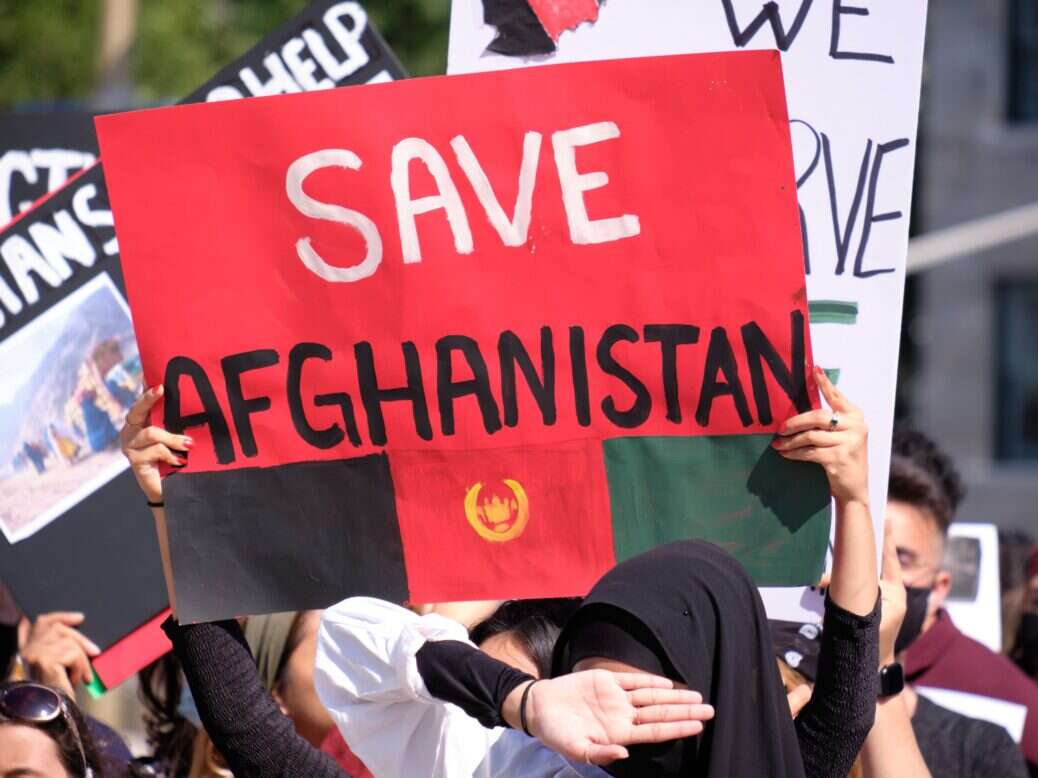
Until two years ago, the news media in Afghanistan thrived. There were 160 television stations, 311 radio stations, 90 print newspapers and 26 news agencies jostling for attention. Nearly 12,000 people, most of them journalists, worked to create content. In a country of many tongues, it seemed there was space for everyone to make their voice heard.
The contrast today is stark; nearly 100 television stations have closed, a third of radio stations no longer broadcast, only 11 newspapers remain and half the news agencies have shut up shop. The fate of the journalists themselves is more troubling still.
A small proportion have found their way to Western countries – usually when sponsored by Western news platforms – and are busy making new lives for themselves.
A much larger group of exiled journalists exist precariously in countries neighbouring Afghanistan. The greatest number are in Pakistan, where several hundred former reporters survive, many in near destitution.
The depth of their needs is evident from the announcement earlier this month that Unesco is funding two hostels for homeless Afghan journalists in Islamabad that will be run by the International Federation of Journalists (IFJ) and the Pakistani Federal Journalists Union.
Of course, some journalists have remained in Afghanistan – doing so has required fortitude and bravery, according to a new report from the Afghan National Journalists Union.
It paints a bleak picture. Fewer than 3,000 journalists remain in the country. And whereas two years ago, 27% of journalists were women, today they make up only 13% of a much-reduced profession.
‘A pattern of arrest, harassment and much worse’
A brief survey of recent headlines from Afghanistan gives a strong impression of what life is like for news gatherers in that country.
Just last week, the Afghan Independent Journalists Union reported the arrest of four reporters. It follows a pattern of arrest, harassment and much worse. The IFJ’s report finds 19 journalists have lost their lives, 21 have been injured and at least 26 have been arrested since 2021.
The apparent collusion of Afghanistan’s government with attacks on the media is evident from the testimony of Mohammad Ismail Azad, who was reporting the funeral of a religious scholar for the Solh TV network when he was attacked.
“I had adhered to all the religious laws and principles in my coverage, but I faced physical assault and intimidation in the presence of the public. The violence was inflicted by the Head of Information and Culture in Herat, along with his guards.”
The perpetrator of the violence is not the only thing that Azad reveals, of course. Constraints on free reporting also ring out.
A couple of weeks ago I spoke with Ahmad Shoaib Fanaa, chief executive of the Afghan National Journalists Union. “Censorship and self-censorship have become rampant, with journalists navigating the perilous territory of permissible content,” he told me. “Access to unbiased information has dwindled, leaving citizens ill-informed.”
He told me also that the absence of comprehensive legal frameworks has exacerbated challenges. “Collaborative efforts between the Islamic Emirate, the international community and media support organisations are essential to prevent the collapse of Afghanistan’s media landscape.”
Three steps to speed recovery of Afghanistan’s media
All of this begs the question, what can we in the West do to help our Afghan colleagues?
The answer is three-fold. Some Western governments have shown great generosity to Afghan journalists – others less so.
There are still plenty who have worked for major news platforms, such as the BBC, who have not been allowed into the UK. Britain is not alone in this. Nonetheless, even a few of us urging our MPs to put humanity first could change minds in Whitehall.
Second, we must keep the pressure on the government in Kabul to create an environment where media can once again thrive.
Despite appearances, the Taliban administration is neither monolithic nor without those who recognise the benefits of a plural, liberal society. They acknowledge that new media law is vital.
Western powers may not much like the new regime but that should not stop them from applying pressure to rescue Afghanistan’s civic institutions and proffering help when asked.
Finally, we should step up the humanitarian aid for Afghan journalists themselves.
Two years ago, the response to the regime change was profound, heartfelt and generous. The IFJ’s safety fund received individual donations at rates it had never seen before – nearly all of which were given in grants averaging £350 to individual journalists to help with food, shelter and medicines.
Since then, other crises have understandably grabbed our attention.
For most Afghan journalists over this period, particularly for women, life has simply got worse and worse.
Even a modest contribution is enough to provide a bed in place of a street corner. I implore everyone to think how grateful they would be for help were they facing a similar situation.
Afghan journalists have endured much but have also demonstrated remarkable resilience. I am sure, eventually, Afghanistan’s media will recover its vitality. It is in all our gift to help speed that process.
Email pged@pressgazette.co.uk to point out mistakes, provide story tips or send in a letter for publication on our "Letters Page" blog
